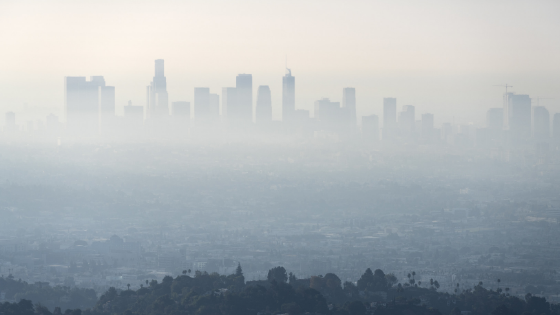Among the few silver lining to the current coronavirus pandemic: our interaction with the planet. Animals around the world have cities all to themselves and they’re loving it. Humans are staying home and leaving the streets untouched.
The coronavirus has changed the fabric of how we live our daily lives, from our daily commutes to shopping habits. But it’s also altered our lives (and our world) in less obvious ways. Mother Nature is happy about some of them.
We’re taking a closer look at pollution and coronavirus to understand what social distancing, quarantine, and social isolation are doing to the world.
Cleaner Air
It’s more than a little ironic that our air is actually cleaner in a time when factories are shut down and more people are wearing respiratory protection and PPE than ever before.
Earth-observing satellites have seen a sharp decrease in nitrogen dioxide, a common air pollutant, coinciding with the imposition of stringent social distancing measures around the globe. In fact, one analysis found that the improvement in air quality likely saved the lives of 4,000 young children and 73,000 elderly adults in China in the last two months.
To be clear, this won’t make a dent in the long-term global warming trend unless it’s sustained over the long-term. That said, there is an appreciable benefit on the human level–if only we could go outside.
A Quieter World
Of course, air pollution isn’t the only flavor of pollution that has plummeted due to the pandemic. Noise pollution has also gone down, as human life is literally quieted due to the coronavirus.
Boston’s Kenmore Square intersection, for example, is normally about 90 decibels during rush hour. For context, a subway train is typically about 95 decibels, while normal conversation is 60 to 70 decibels. Readings from the same intersection at the start of April clocked in at just 68 decibels.
At the same time, the soundscapes around us are changing. Ambulances are now one of the most common sounds in New York City, while in other parts of the country, some families are celebrating birthdays while observing social distancing by honking and cheering from their cars. And in many cities, birds are now audible in the absence of traffic, from their delighted songs to their flapping wings.
And while the lack of travel is making many people stir-crazy, the reduced noise pollution is better for our health. Noise pollution has long been shown to contribute to stress-related ailments, sleep disruption, and, of course, lifetime hearing loss.
The New World of Pollution and Coronavirus
Who knew that one little virus could change our world so completely? Just two months ago, the idea of an empty Times Square or hearing birds flapping in the middle of crowded city streets was unfathomable. Coronavirus has proven these things not just possible but likely to continue for some time.
The question is how the relationship between pollution and coronavirus will continue to evolve. And as with all other things coronavirus, it seems only time will tell.
Make sure to check out our blog for more coronavirus coverage, like this primer on health and safety in the coronavirus pandemic.
